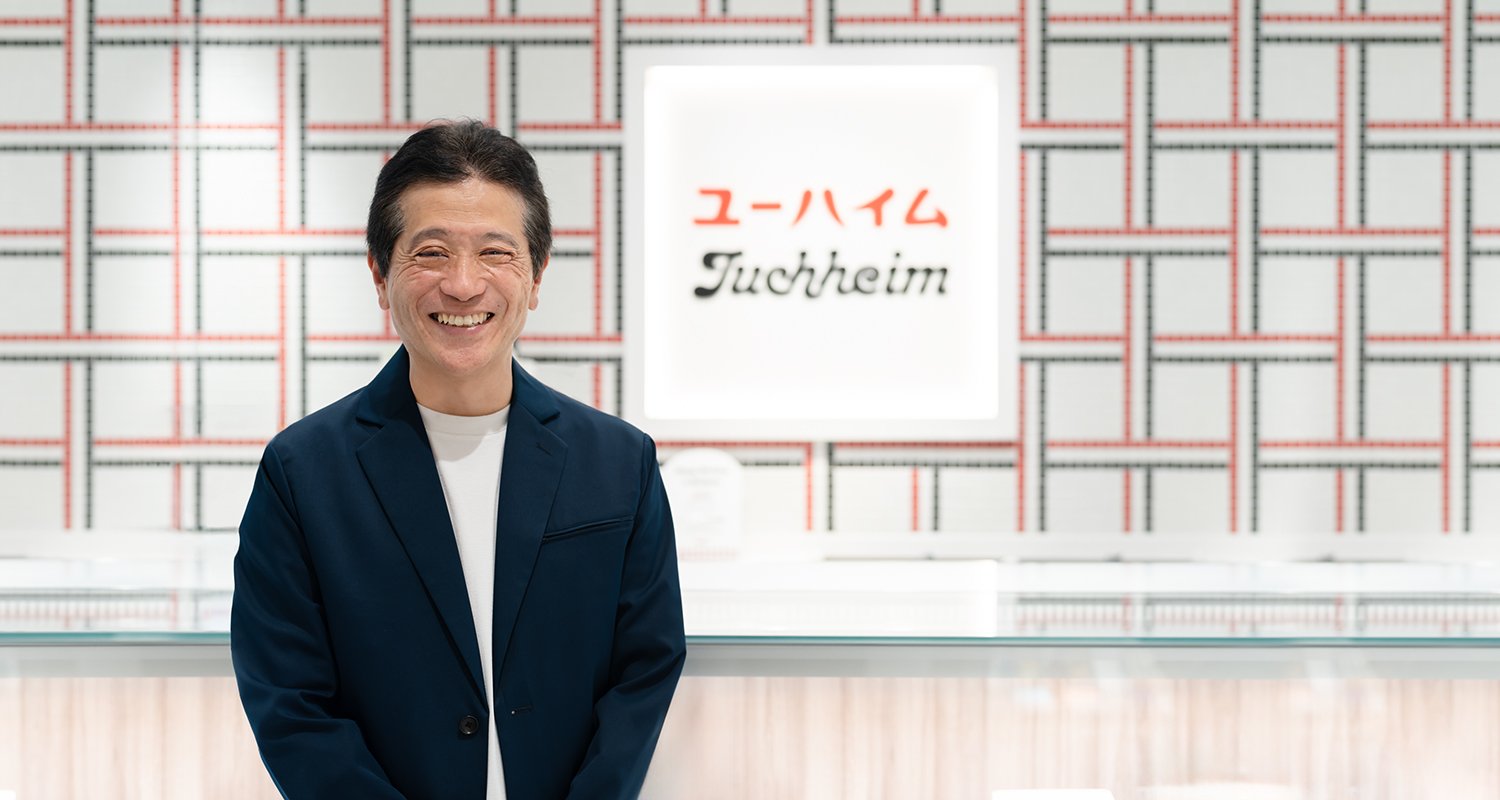Baumkuchen is a Western confection that has long been cherished by Japanese consumers. Introduced to Japan by Karl Juchheim in 1919, its flavors have been safeguarded and popularized for more than a century by Juchheim Co., Ltd. (Juchheim). In this interview, Mio Shimamura speaks to Hideo Kawamoto, the company’s President and CEO.
A 100-year-old recipe in harmony with nature
Baumkuchen in Japan can trace its roots back to 1909, to a confectionery store managed by Karl Juchheim in Qingdao, China. Brought to Japan as a prisoner of World War I, Juchheim started his life anew in post-war Kobe with the opening of a new confectionery store. After his passing in 1945, Juchheim’s dedicated employees carried on his legacy by establishing a new store in his name. And it is here at Juchheim where Baumkuchen continues to be produced with the same original flavors.
In Japan, the Juchheim name has become synonymous with Baumkuchen. Indeed, Japan’s first-ever Baumkuchen was baked in 1919 by Karl Juchheim at an exhibition held at the Hiroshima Prefectural Industrial Promotion Hall, now the Hiroshima Peace Memorial.
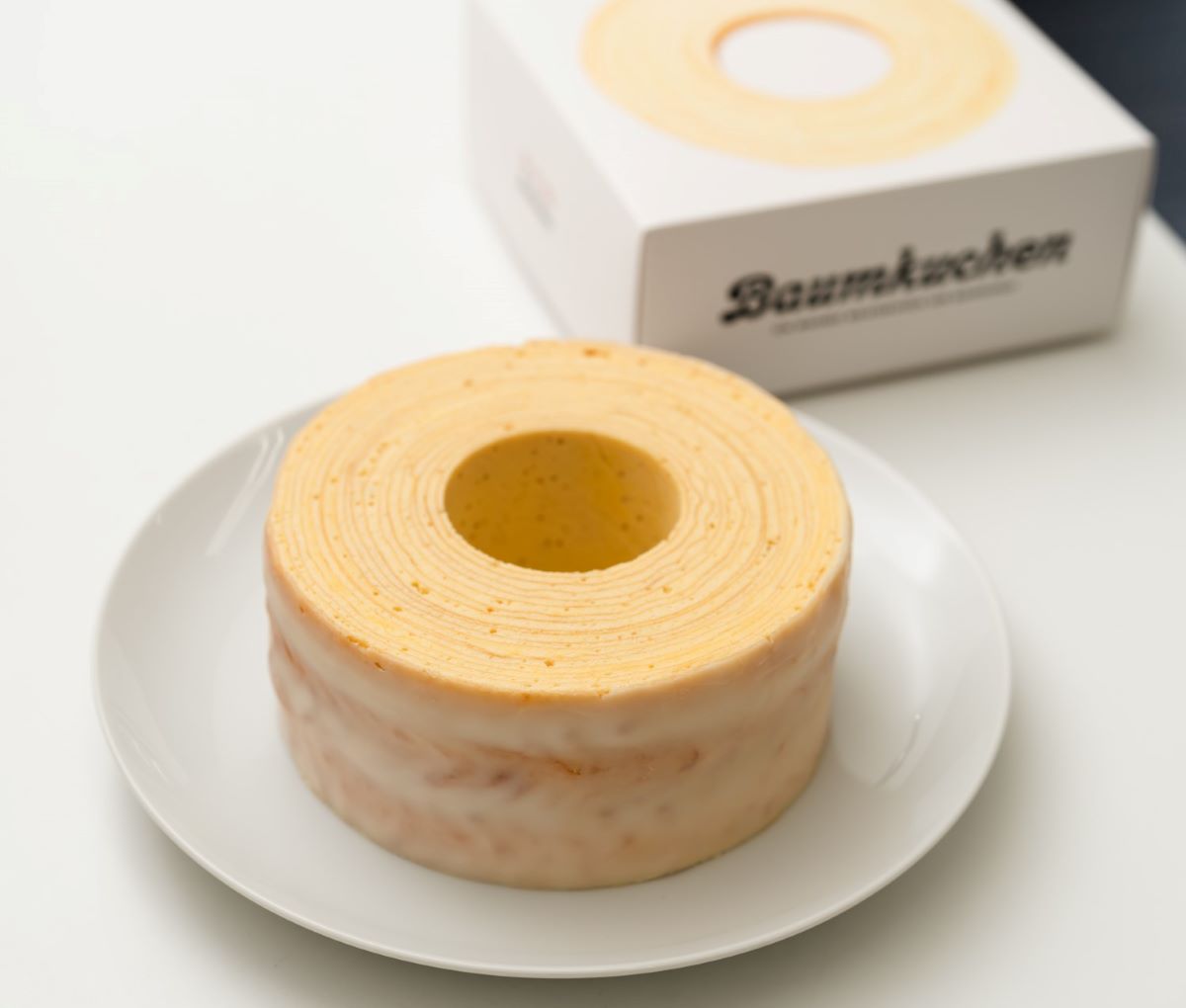

A traditional “hollow” Baumkuchen
“Baumkuchen is made from simple ingredients,” explains Kawamoto, “just sugar, flour, eggs, and butter. The secret lies in the careful baking of each layer. It’s this that dictates the texture of the finished product, affecting not only the appearance, but also the flavor. In other words, what you’re really tasting is the craftmanship of the confection-maker.”
“The Baumkuchen is the logo of the Deutsche Konditorenbund, the German Federation of Handmade Confections. In fact, to be accredited as a “master of confections,” examinees must bake a Baumkuchen in their final exam—a testament to the expertise required to craft a Baumkuchen. Today, more than 100 years since Juchheim came to these shores, we still use the same simple recipe.”
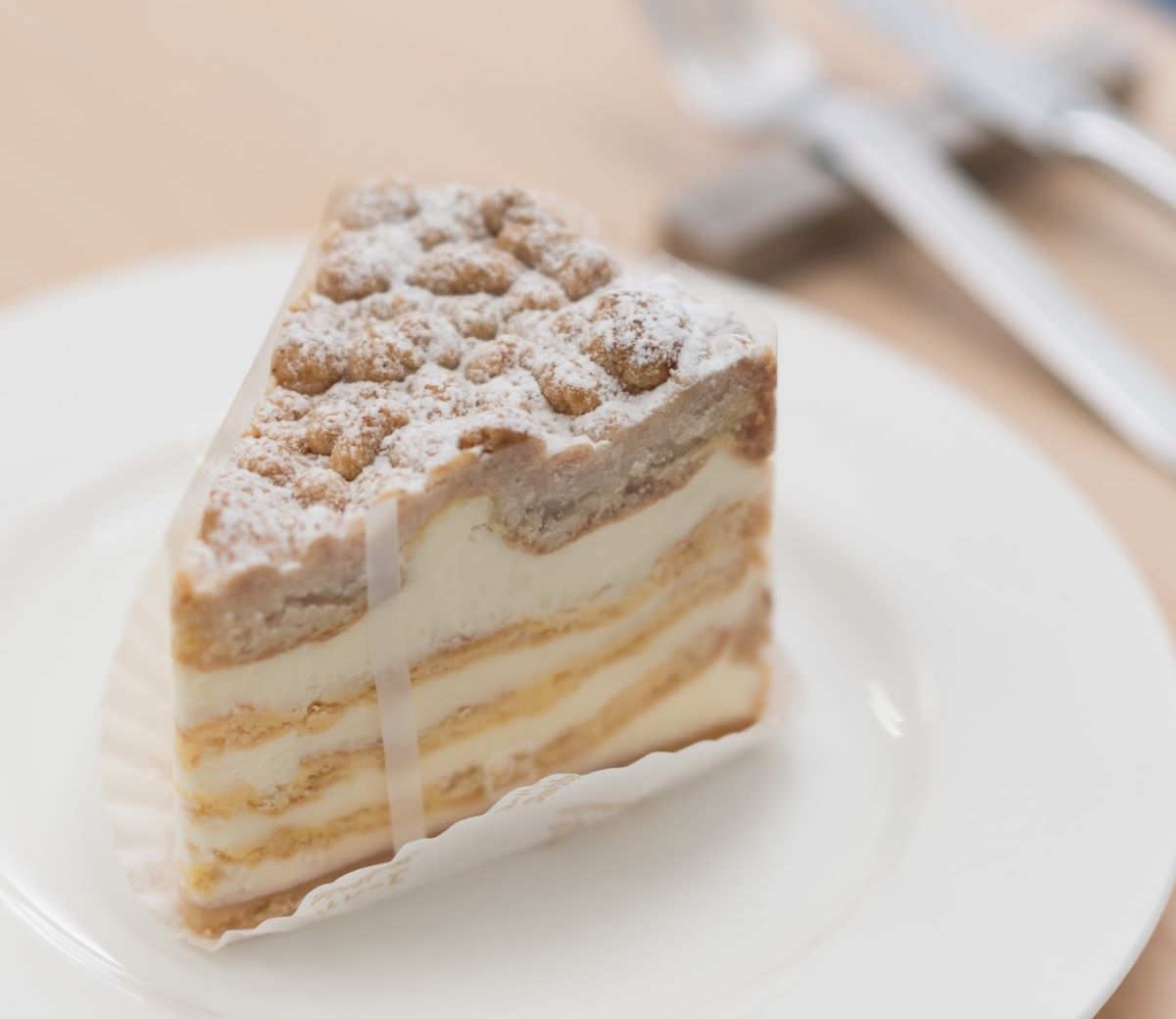

The popular “flockensahnetorte” is a favorite of a famous music artist.
While Baumkuchen remains iconic, Juchheim offers a variety of other confections, including the “teegebäck,” a cookie whose name means “tea-time pastry,” and the “flockensahnetorte,” a cake made with alternating layers of choux pastry and fresh cream. Quality ingredients are prioritized at Juchheim, and every confection is crafted with the utmost care to ensure that they are 100% natural, and free of additives.
“In Germany, they have a no-additive rule for Baumkuchen. We embrace this policy at Juchheim, and follow the basic philosophy of German pastries—that you must achieve harmony with nature.”
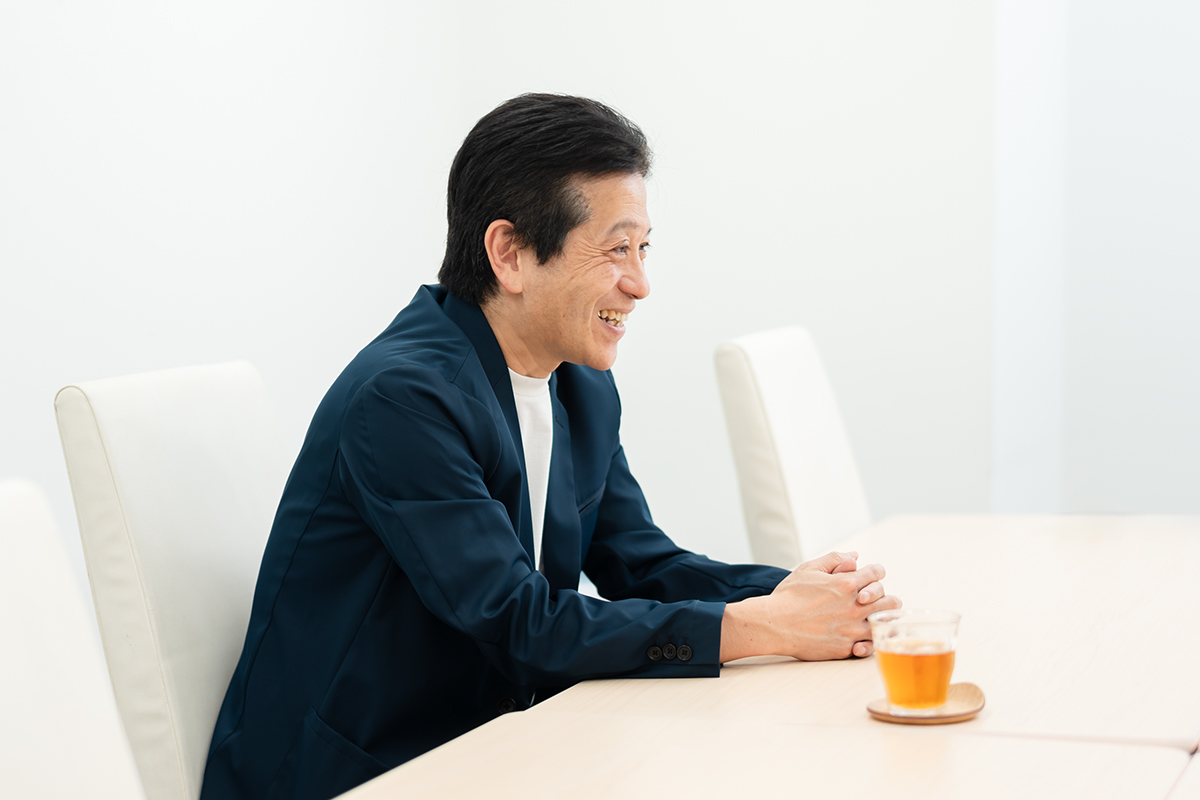

After joining Juchheim, Kawamoto worked in the company’s factories: “I was instructed by experienced craftspeople, and I learned how to bake Baumkuchen.”
It initially proved extremely challenging for Juchheim to ensure that all its products were 100% additive-free, and for a time, the company stopped promoting the additive-free nature of its confections. However, after Kawamoto was appointed President in 2015, his first move was to ensure a return to the “100% natural” roots. He did this for two reasons: to guarantee food safety, and because he believed that one of the key challenges for Juchheim was improving and passing on the skills of its confection-makers.
“The use of additives requires less skill, as additives facilitate consistent quality of production. However, if quality is consistent across the board, then it also becomes difficult to improve how a product tastes—nor can we refine the skills of our confection-makers. Our goal is not to guarantee consistency of taste, but to continue improving taste. Our focus is less on enhancing the quality of the production line, and more on improving the flavors of the confections themselves.
“One of our main challenges is to continuously improve the flavor of our products while keeping true to our recipes. And we must do this despite the evolving of ingredients—as evidenced, for example, by particles of flour getting finer and finer. But if we simply remove all additives, it will adversely impact both taste and productivity. Ultimately, if we want to improve the taste of our confections, we need to improve the skills of our confection-makers.”
Juchheim prioritizes safe and delicious-tasting products over productivity, and it relies on the skills of its confection-makers to do this. After repeated trial and error, Juchheim were once again able to declare their products as “100% natural” in March 2020. Going forward, all its confections will continue to be 100% additive-free.
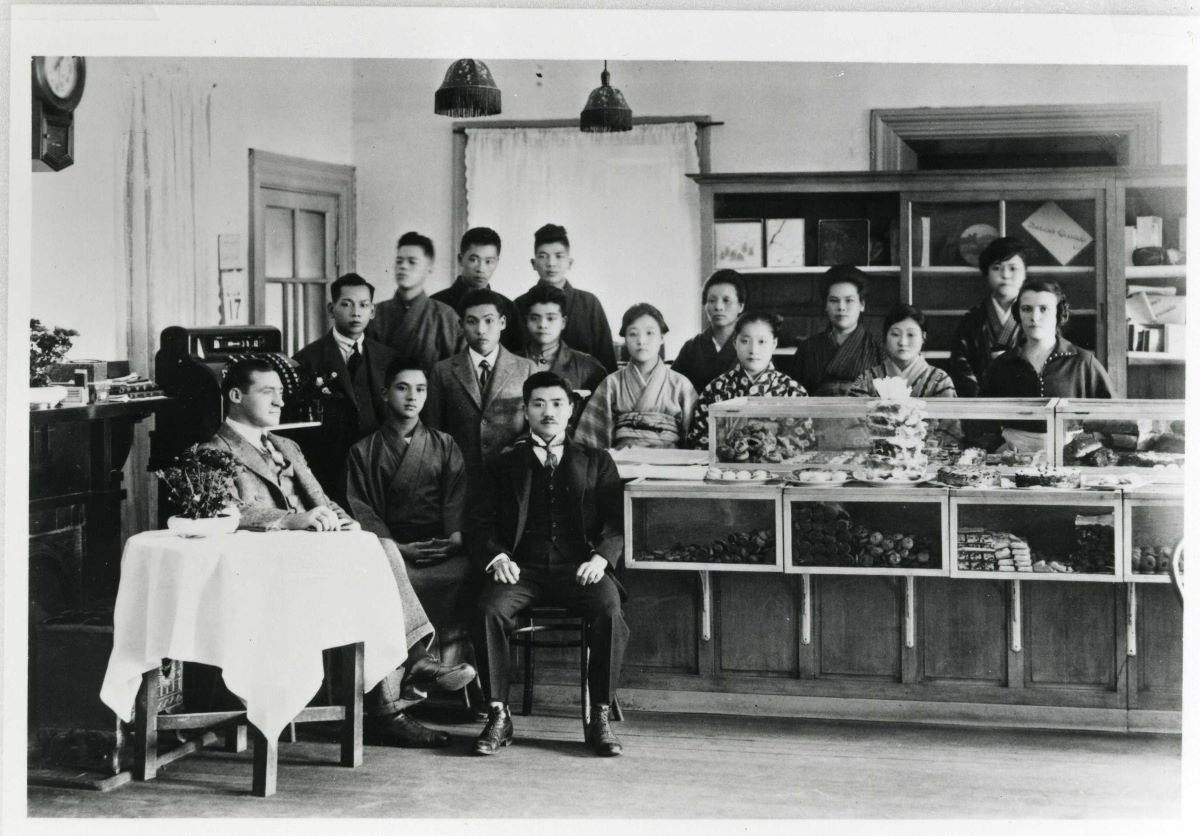

The interior of the first Juchheim store in Kobe, as it was in 1923; Karl Juchheim is seated far-left.
Juchheim evidently places an incredible amount of trust and value on the skills of its confection-makers. And so, it is interesting that the company does not require its confection-makers to have graduated from confectionery school; and for the last few decades, the company has not hired any mid-career recruits, preferring, instead, to recruit new graduates once a year and then nurture them in-house.
“The majority of our confection-makers at Juchheim have not had formal training at confectionery school. This is why our in-house training programs are so important. Our recruitment policy in its simplest term really boils down to ‘Are they good people?’. Karl Juchheim is reported to have said: ‘To create good societies, we must nurture good people into good craftspeople.’ To me, this means that, rather than thinking about personal profit, we have a responsibility to make delicious food that brings people joy.”
From bringing joy through confections to developing AI ovens
Alongside its 100%-natural initiatives, Juchheim is also focused on FoodTech. Using images of Baumkuchen baked by confection-makers as training data for machine learning, Juchheim has developed its own AI oven, named THEO, which is capable of automatically baking Baumkuchen to the same level as the company’s confection-makers. At present, 40 of these ovens are in use nationwide.
The idea for THEO was inspired by Kawamoto’s business research into South African slums. Through his research, he learned that even amid great poverty, families still bought confections to celebrate their children’s birthdays.
Kawamoto wanted these people to enjoy tasty confections, but simply providing them with confections would only provide short-term relief, and be little more than a superficial, and essentially, ineffective act of charity. Kawamoto wanted to create a business model in which these families would be compensated according to their efforts. He came up with the concept of a portable Baumkuchen machine—and this eventually evolved into THEO.
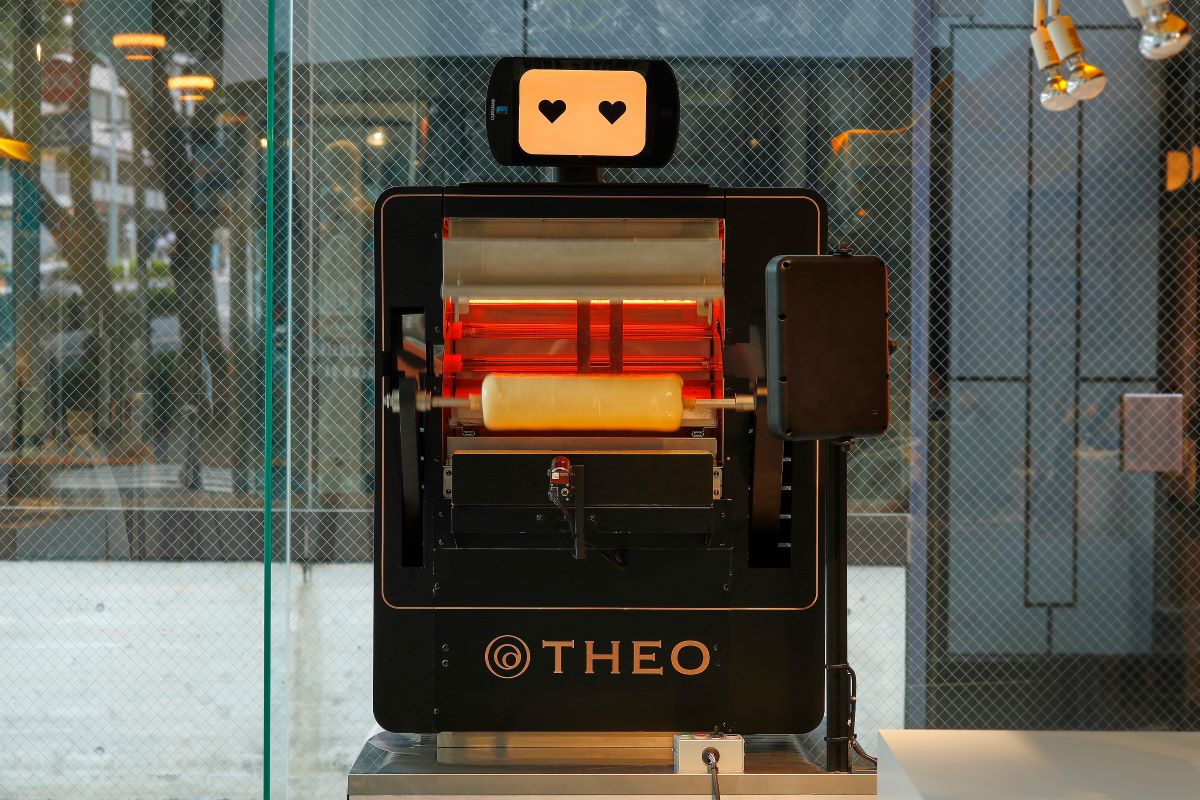

The Baumkuchen AI oven “THEO”
Initially, Kawamoto’s idea was to provide online instruction to South African families. However, since a Baumkuchen can be burnt with only a few seconds of error, any internet connection disruption could prove fatal. Kawamoto’s breakthrough solution was to train an AI using machine learning.
In the past, when Juchheim wished to increase production volumes, they were faced with a choice: modify the recipe to improve productivity, or develop new machines capable of producing more while using the same recipe. Juchheim chose the latter. This experience of independently developing equipment was something the company drew upon in its AI oven project.
“Juchheim installed machinery for mass production more than 50 years ago. At the time, machines to mass-produce Baumkuchen did exist in Germany, but using them would have required us to slightly alter our recipe. Since we don’t use emulsifiers or other additives, these existing machines would also have required delicate adjustments to our production process. The company concluded that it would be better to fit the machines to the recipe, rather than the other way round, and started developing our own equipment.”
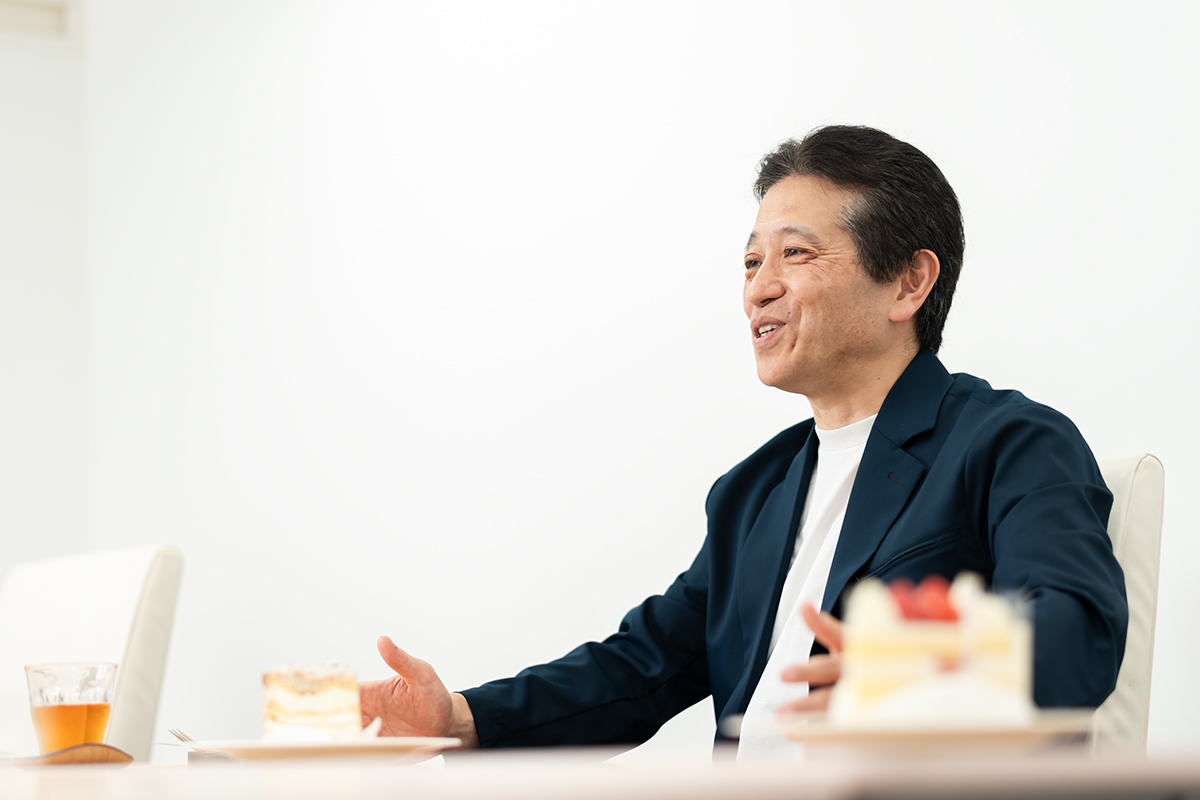

“To begin with, development on THEO commenced with just three people: an experienced confection-maker, an engineer, and myself,” Kawamoto recalls with a smile.
After unveiling THEO in 2020, the company received inquiries from various parties.
“Although we had completed development on THEO, initially we struggled to find uses for it—after all, it’s not necessary for our confection-makers. But we received inquiries from various parties, including a traditional Japanese confectionery that was in the process of restructuring its management, and an egg farmer that was looking for ways to use up eggs that didn’t meet regulatory standards. THEO is helping to solve various challenges, from management restructuring and labor shortages to food waste. It has opened up unexpected new paths.”
Although Kawamoto has yet to take THEO to Africa, his desire to help others has taken shape in a different way.
Improving the taste of Juchheim’s founder
Juchheim also plays an active role in invigorating the confectionery industry as a whole. Eight years ago, for example, it launched the “Baumkuchen Expo®,” which attracts approximately 220 Baumkuchen brands from across Japan, from Hokkaido in the north to Okinawa in the south. According to Kawamoto, some of his colleagues worried that visitors would not attend an exhibition dedicated solely to Baumkuchen; but Baumkuchen Expo® has been a huge success every year, becoming one of Japan’s most popular food events.
Over the last few years, Juchheim has celebrated a number of centenaries. In 2019, the company marked the 100th anniversary of the first-ever Baumkuchen baked in Japan. In 2022, it was 100 years since Karl Juchheim determined to reside permanently in Japan, and opened his first store in Yokohama, Japan. And 2023 is the centenary year of the opening of the first Juchheim store in Kobe, in the aftermath of the Great Kanto Earthquake. The second 100 years of the company’s history have already begun.
Since its founding, generations of confection-makers have inherited and refined Juchheim’s tradition of making natural-tasting confections that use only the purest ingredients. On August 14, 2023, Juchheim formally labeled this “Mutenka,” meaning “additive-free confections,” and made its “Mutenka Sengen | /0 (slash zero)” declaration. The /0 refers to how ingredients are labeled on food product in Japan, where a “/” demarcates standard food product ingredients from any additives. “/0” is therefore a way of proving that Juchheim uses zero additives in its production processes.
“If Juchheim is to survive for another 100 years, there are two things we must do,” notes Kawamoto. “We must ensure our lineage of confection-makers remains intact, and we must continue to make delicious-tasting confections. It is not enough to maintain the taste of our founder. Instead, we must ensure that the Baumkuchen we make today are the best-ever-tasting Baumkuchen—better even than the Baumkuchen made by Karl Juchheim. If we can pass on the taste of our Baumkuchen and the skills of our confection-makers to future generations, then we can make Baumkuchen tomorrow that are better than the Baumkuchen we make today; and that the Baumkuchen we make in 100 years are even more delicious.”
With a strong belief and respect for craftmanship, coupled with a flexible response to the changing times, and the drive to continually push the boundaries of taste, since its founding, Juchheim has been committed to refining the flavors of its products. As it enters the second hundred years of its history, no doubt these flavors will continue to improve and evolve.
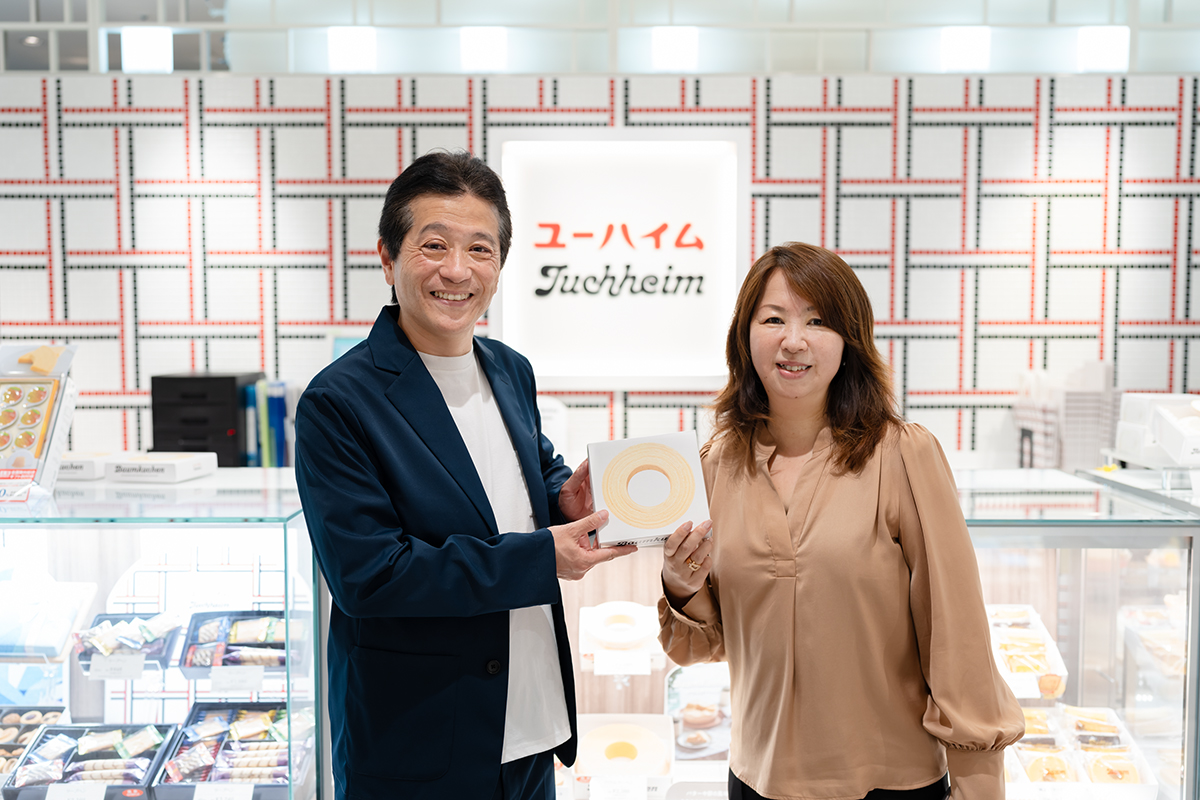

Shimamura visits a Juchheim store to learn about its products from President Kawamoto; her first instinct is to reach for the Baumkuchen.
Hideo Kawamoto
Born in Kobe, Hyogo, in 1969. After graduating from the Meiji University School of Commerce, completed his Master’s degree at Keio University. Joined Juchheim in 1999 and, after training in Paris, returned to Japan to head the company’s Planning Division. Later appointed the Chuo Factory’s Sales Manager, General Manager of the Kansai Branch, Manager of Overseas Businesses, Head of Sales Headquarters, and Representative Director & Executive Director. Kawamoto became President & CEO of Juchheim in 2015.
Mio Shimamura
Mio Shimamura Managing Director and Editor-in-chief of Premium Japan. After joining an international advertising agency, worked in marketing and PR at a variety of leading brands, including Walt Disney, Harry Winston, and Tiffany & Co. In 2013, Shimamura established Lusso Inc., a PR company that works with various leading brands. Shimamura comes from a family that teaches traditional Japanese arts such as the Japanese tea ceremony and “kitsuke,” the art of wearing Japanese clothing beautifully. Inspired by this, Shimamura acquired the business rights to Premium Japan in 2017, and the following year established Premium Japan Inc.
Photography by Toshiyuki Furuya
